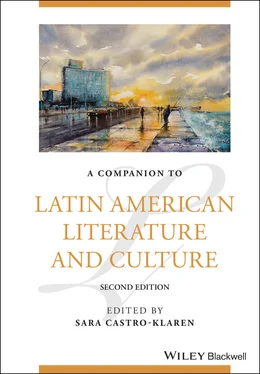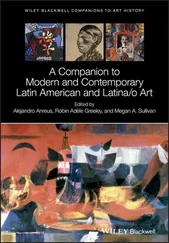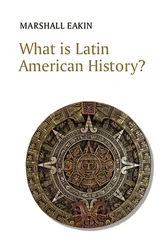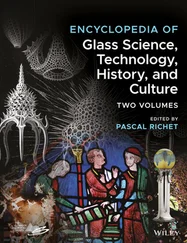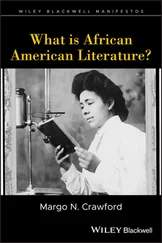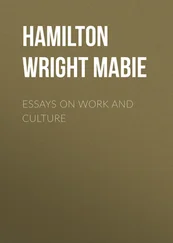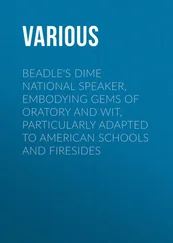Carlos M. Lópezis a professor and researcher in the Department of Modern Languages at Marshall University, Huntington, West Virginia. His specialization is in the study of the Popol Wuj and the production of texts under conditions of colonization. Among his publications is Los Popol Wuj y sus Epistemologías: Las diferencias, el conocimiento y los ciclos del infi nito (1999). He is the academic director of the online edition of the manuscript of the Popol Wuj in the collaborative project developed by Ohio State University Libraries and the Newberry Library ( http://library.osu.edu/ sites/popolwuj) and also the academic director of the online site The Popol Wuj and Mayan Culture Archives (http://sppo.osu.edu/latinAmerica/archives/PopolWujLibrary/) hosted by the Department of Spanish and Portuguese and the Center for Latin American Studies at Ohio State University.
Franklin W. Knightis Leonard and Helen R. Stulman Professor of History at the Johns Hopkins University, Baltimore. He has published extensively on Latin America and the Caribbean, including Slave Society in Cuba during the Nineteenth Century (1970) and The Caribbean: Genesis of a Fragmented Nationalism (1990). He served as president of the Latin American Studies Association as well as of the Historical Society.
Elizabeth A. Marchantis Associate Professor of Gender Studies and Comparative Literature at UCLA. She is the author of Critical Acts: Latin American Women and Cultural Criticism (University Press of Florida) and coeditor of Comparative Perspectives on the Black Atlantic, a special issue of Comparative Literature Studies (48.2). She is currently writing a book on enslavement and counter-memory in Brazil.
Kathryn Joy McKnightis Associate Professor of Spanish at the University of New Mexico. Her book The Mystic of Tunja: The Writings of Madre Castillo, 1671–1742 (1997) was awarded the MLA’s Katherine Singer Kovacs Award. In 2009, she coedited with Leo Garofalo Afro-Latino Voices: Narratives from the Early Modern Ibero-Atlantic World, 1550–1812 . Her health humanities text Para vivir con salud: leyendo la salud y la literatura (2021) co-authored with Jill S. Kuhnheim is available as an Open Educational Resource. Her ongoing research focuses on narratives of Afrodescendants in the early modern period and on teaching Hispanic literature to pre-health majors. She was awarded UNM’s Teacher of the Year Award in 2017.
Walter D. Mignolois William H. Wannamaker Distinguished Professor of Romance Studies and Professor of Literature at Duke University. He has published extensively on semiotics and literary theory, and has in past years worked on different aspects of the modern/colonial world exploring concepts such as global coloniality, the geopolitics of knowledge, transmodernity, border thinking, and pluriversality. His publications on these topics include: The Darker Side of the Renaissance: Literacy, Territoriality, Colonization (1995, winner of the Katherine Singer Kovacs prize from the Modern Languages Association) and The Idea of Latin America (2005), Local Histories/Global Designs: Coloniality, Subaltern Knowledges and Border Thinking (2000). He is co-author with Catherine Walsh of On Decoloniality: Concepts, Analytics, Praxis (2018) and The Politics of Decolonial Investigations (2021). He is editor and coeditor of Capitalismo y geopolítica del conocimiento: El eurocentrismo y la filosofía de la liberación en el debate intelectual contemporanáneo (2000) and The Americas: Loci of Enunciations and Imaginary Constructions (1994–95). His works have been translated into Mandarin, Korean, Russian, Estonian, Polish, Spanish, French, German, Portuguese, Swedish, Rumanian, Italian, and Turkish.
Elizabeth Monasteriosis Professor of Latin American Literatures and Andean Studies in the Department on Hispanic Languages and Literatures, University of Pittsburgh. Her teaching and research focus on Andean epistemologies, critical posthumanities, colonialism, and anticolonialism. Her most recent authored book, La vanguardia plebeya del Titikaka. Gamaliel Churata y otras insurgencies estéticas en los Andes (IFEA, 2015), received the 2016 Roggiano Prize for Latin American Literary Criticism, awarded by the International Institute of Ibero-American Literature. She is also coeditor of the Bolivian Studies Journal , founding member of JALLA (Jornadas Andinas de Literatura Latinoamericana), and has published widely on Andean and Indigenous literatures.
Juan Pobleteis Associate Professor of Latin American Literature and Cultural Studies at the University of California, Santa Cruz. He is the author of Literatura chilena del siglo XIX: Entre públicos lectores y fi guras autoriales and the editor of Critical Latin American and Latino Studies (both 2003.) He is currently at work on a project on forms of mediation between culture and the market in the context of the neoliberal transformation of Chilean culture. He recently edited interdisciplinary Special Dossiers on the Globalization of Latin/o American Populations and Studies for the journals Iberoamericana (Germany), LASA Forum , and Latino Studies Journal . He is coediting two forthcoming volumes: Andres Bello (with Beatriz Gonzalez-Stephan) and Redrawing The Nation: Latin American Comics and The Graphic Construction of Cultural Identities (with Héctor Fernández-L’Hoeste).
José Rabasateaches in the Department of Spanish and Portuguese at UC Berkeley. His publications include Inventing America: Spanish Historiography and the Formation of Eurocentrism (1993) and Writing Violence on the Northern Frontier: The Historiography of New Mexico and Florida and The Legacy of Conquest (2000). He is in the process of collecting together into one volume his numerous articles on postcolonial theory and subaltern studies, and is completing a study of the intersection of pictography, orality, and alphabetical writing in Nahuatl colonial texts.
Juan G. Ramosis an associate professor of Spanish at the College of the Holy Cross (Worcester, MA) where he teaches courses in both Spanish and English on Latin American and world literature. He is the author of Sensing Decolonial Aesthetics in Latin American Arts (University of Florida Press, 2018) and coeditor of Decolonial Approaches to Latin American Literatures and Cultures (Palgrave, 2016). He has also published on twentieth-century Latin American poetry, fiction, and film with a particular emphasis on the Andes. He has received a fellowship at the National Humanities Center (2021–2022) to continue working on his current book project on Andean modernismos.
Luis Fernando Restrepois university professor in the Department of World Languages, Literatures, and Cultures of the University of Arkansas, Fayetteville, where he directs the graduate program in Comparative Literature and Cultural Studies. His areas of research are colonial Latin America, Indigenous literatures, and literature and human rights. Among his publications and editions are Un nuevo reino imaginado , Antología Crítica de Juan de Castellanos , El Estado impostor , Narrativas en vilo entre la estética y la política and El malestar del posconflicto . His current book project examines early modern humanitarianism. He has received a Fulbright Scholar Award and the Instituto Internacional de Literatura Iberoamericana Literary Criticism Award.
Fernando J. Rosenbergis Professor of Romance Studies, Latin American and Latino and Caribbean Studies, and Film and Television Studies at Brandeis University. He is the author of The Avant-garde and Geopolitics in Latin America (Pittsburgh UP, 2006) and After Human Rights. Literature, Visual Arts and Film in Latin America (1990–2010) (Pittsburgh UP, 2016). He is currently working on contemporary literary and artistic production at the intersection of posthumanism and gender theories.
Читать дальше
